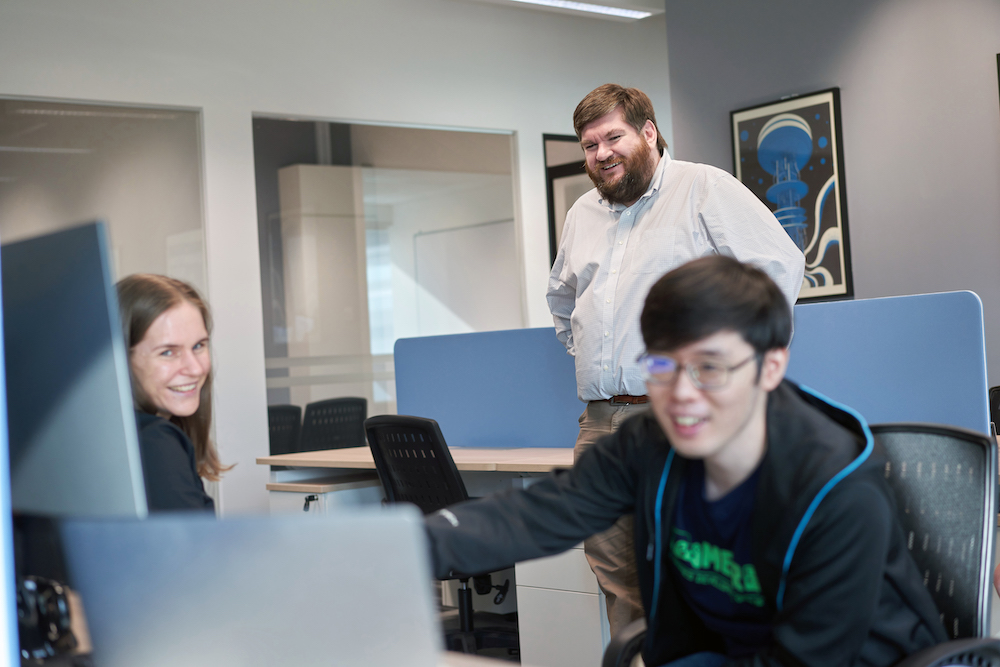How one Singapore business is streamlining coding so that even non-quantum engineers can code quantum.
You’ve definitely heard about quantum mechanics before — on a TV show, the news, or anywhere else for that matter — yet we usually hear it in some abstract scientific context that is far distant from ordinary people’s lives.
One Singapore startup, on the other hand, is bringing the quantum realm far closer to people’s everyday lives, and maybe sooner than you think.
Dr. Joe Fitzsimons founded the company Horizon Quantum Computing. He has worked as a professor and researcher in a variety of universities for over a decade.
In 2018, he saw that quantum computers had made great progress, but that due to a lack of quantum programming skills, few people were able to take advantage of this futuristic technology.
“We’re attempting to bridge the gap between the gadget’s user and the device itself… “We’re aiming to give programmers who can program conventional computers the tools they need to build quantum computers without a steep learning curve,” Joe, who also acts as the company’s CEO, explained.
As a result, Fitzsimons left academia with a group of people to start Horizon Quantum Computing in order to address what he refers to as “the algorithm bottleneck.”
What does Horizon actually do?

Horizon Quantum Computing
Horizon’s major goal is to create a compiler that simplifies code, allowing a single language to be used for both quantum and classical programs without requiring the programmer to be a quantum expert.
Horizon will develop a technology that will “build a quantum algorithm from solely classical (code) automatically.” While this may appear dry and distant, it is the approach that distinguishes Horizon’s art.
They aren’t only working on a highly specialized project. Instead, Horizon is concentrating on developing something that can be used by everybody.
There are a lot of companies that try to come up with particular solutions for particular industries, but we try to avoid that. … A lot of users of high performance computing are not relying on software that’s developed by others.
They have their own teams that are building special software for their particular industry. So what we’re trying to do is enable those teams to develop for quantum hardware without having to understand in great detail how quantum computing works.
– Dr. Joe Fitzsimons, founder and CEO of Horizon Quantum Computing

Part of a quantum computer
Horizon’s software will be utilized by other developers at other companies for their own purposes, with Horizon profiting from the usage fees through a Software-as-a-Service (SaaS) model.
It intends to form partnerships with quantum hardware and software businesses, which will employ their software, as well as other multinational corporations (MNCs) for the in-house creation of programs for their own usage.
Horizon is already a part of Singapore’s National Quantum-Safe Network, which focuses on digital security and the testing of innovative technology for commercial and critical infrastructure applications.
When things get rough, the tough get even tougher

Horizon Quantum Computing
Horizon encountered various obstacles in its early years, including VC networking.
The founders had very few relationships with venture capital firms because they came from a purely academic background, and the skill pool from which he had to recruit was limited.
Fortunately, Joe had previously met Steve Leonard, CEO of SGInnovate, a Singapore government-backed venture capital business.
SGInnovate agreed to invest in the project, and as interest in the company grew, so did investments, with Sequoia Capital leading the company’s seed round, bringing the company’s total funding to S$4.5 million, enough for Horizon to rule out further seed rounds.
Horizon’s alliances, meanwhile, appear to be fruitful. It is currently collaborating with IBM to have access to hardware and is working to establish connections in the community.
The startup hopes to sell to early adopters of quantum technology in fields including finance, healthcare, and energy in the near future.
Horizon’s technology is still in development, but the company is focusing on giving clients early access and personalizing their generalized tech solutions to specific industries.
Horizon is a fast-growing firm, but not because it is the next Razer or Samsung. Horizon, on the other hand, is focused on what adds value to and complements the hardware—the software that allows users to fully utilize these technologies.
“I’m not the type of person who creates gadgets.” At the time, we don’t have a lab. But what we’ve been trying to figure out is how to make use of the hardware, not how to manufacture it.”
Instead, Horizon intends to provide quantum computing to firms and customers in the quantum industry as quickly as feasible.





